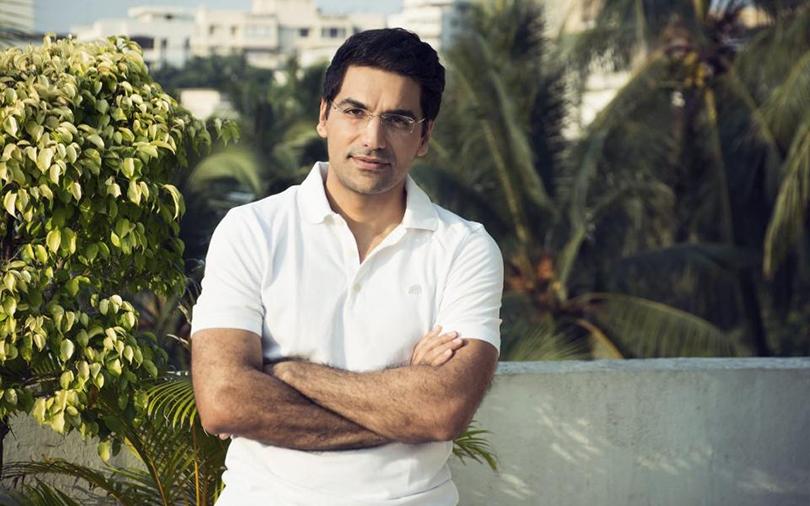In the North Bangalore headquarters of online classifieds company Quikr India Pvt. Ltd, the conference rooms are called 'jaldi', 'raftaar', 'daud', and so on, names that are synonymous with speed. The nomenclature couldn't have been more apt, given Quikr has been buying companies at breakneck pace. On Wednesday, it made its latest acquisition, buying blue-collar jobs listing company Babajob in a mostly-stock deal.
In an exclusive interview with VCCircle that predates the Babajob deal announcement, Quikr's co-founder and chief executive Pranay Chulet talks about the company's acquisition spree and explains how its growth strategy is a mix of organic and inorganic. And why its buyouts represent the evolution of the business. Excerpts:
After almost a decade of starting up, what does Quikr stand for now?
We initially started with a broad focus on consumer transactions. As of today, we are a collection of verticals focused on a few key categories that have traditionally seen chaotic transactions.
Earlier, buying and selling things wasn't easy. For example, we didn’t even have a used car market or organised channels for it. In jobs, we all know there is a crying need for more blue-collar work in our country in most companies. We have millions of people looking for these jobs, but somehow the employer and the employee do not find each other easily. Similarly, whether it's buying a house or hiring someone's services, there is a lot of complexity in transactions. So Quikr, which was initially a classic horizontal platform, has become a collection of these verticals over time.
On a more philosophical level, the one thread that ties Quikr together is that we bridge the gap between India and Bharat. On one side of the transaction, there is the relatively more affluent Indian population. And, on the other, there is a more aspirational segment.
Where are you headed as a company?
We are trying to become bigger in what we started. We have never entered a new business that wasn't already a part of Quikr. What has changed—along with changes in the market, consumer habits and our size—is how deep we are in these categories.
If you look at any of the acquisitions or the five verticals, they were all part of Quikr from day one. It is just that how we solve the problem has become deeper over time. Our acquisitions represent the evolution of the business. Some of it is a function of our own thinking while the rest is a function of the market.
But why so many acquisitions back to back? Why are you so focussed on inorganic growth?
If you were to ask me about our growth strategy, it was not inorganic when we started out. I will still not say that we are a firm that's growing only inorganically. When it makes business sense, yes, we are interested in looking at platforms that can help us grow. But, at the same time, a lot of growth has come from organic sources too. That reflects in our traffic, revenue and listings.
Our growth strategy is a combination of organic and inorganic. We have made acquisitions to gain scale or market share in our existing verticals.
Which is your favourite acquisition so far?
It will be hard for me to name one company.
Which was the hardest?
Let me try to answer this differently. If you were to look at large and small acquisitions, they need to be integrated in different ways. A larger platform usually has a larger team. Often, there can be slight differences in culture. It has its own brand, you have your own. Do you bring them together or run them separately? The questions are very different. If you look at the small acquisitions, they are easier to plug in but need more hand-holding.
We can look at these acquisitions in several different ways. Did they add to the bottom-line of the company? Did they add to the operational capabilities? Did we do the acquisition just to bring on-board a talented team? I often find that the benefits of the acquisition can be on very different dimensions. For example, a smaller platform may contribute less to your revenue, but can give you a great team that could have taken three years to put together.
How are you convincing all these startups to sell themselves to you?
I don’t think I am convincing them. In these business transactions, like-minded people somehow get together. It is more of an evolutionary conversation.
Do you handle these M&As yourself, or do you appoint investment bankers?
We do take help from investment bankers. We have a well-structured process wherein our vertical heads also evaluate proposals. It would not make sense to do it any other way.
You have always had big investors backing you, and you have raised over $350 million so far. Is there a pressure to become profitable?
I look at my investors as partners. These are considerations that are on top of my mind too. We are all on the same page. We are here to build a good business. We have always tried to build a company that is financially responsible. My first priority is to make sure that Quikr becomes profitable over the desired time-frame of seven quarters. One of our verticals, jobs, turned profitable last quarter.
What is the success metric you believe in?
I read a quote somewhere, “Happiness is positive cash flow.†Leadership without profitability or profitability without leadership doesn’t excite us much.
Like this interview? Sign up for our daily newsletter to get our top reports.






